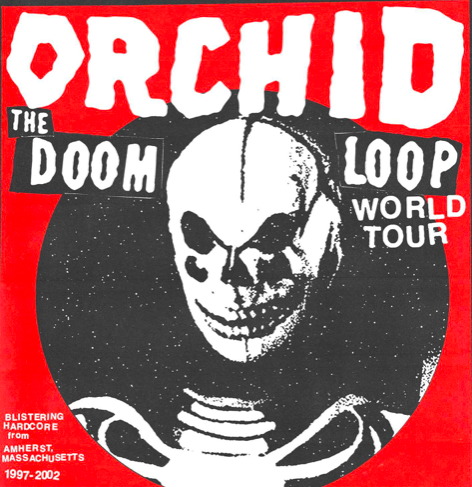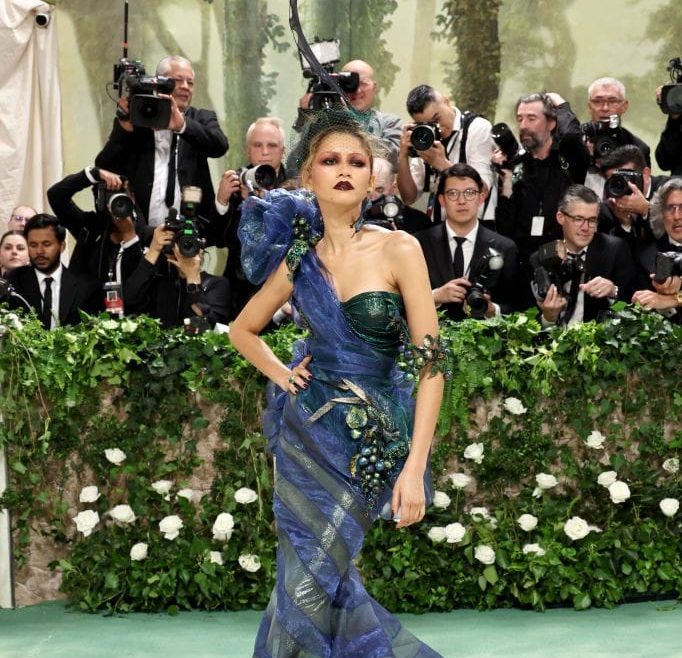Both “Cold Mountain” and “The Last Samurai” are Oscar-quality movies. I don’t mean that as a compliment. Both are impressively staged epics – you know, those long, sweeping, three-hour buttkillers that are almost always impossible to sit through – that seem to be built (or maybe just jerry-rigged) from the chapters of the Academy Award handbook. They are both, strangely, too remote and prestigious to be truly loved. They are the kind of austere, honey-glazed Academy catnip that could be examples from “How To Win an Oscar For Dummies.”
“Cold Mountain” is the more prestigious of the two. It has all the elements of a sure-fire “Best Picture” contender: Miramax backing, an acclaimed literary source and a pedigreed cast and crew that includes Nicole Kidman, who’s fast becoming the fine-boned queen of Prestige Oscar Wannabes (see also “The Hours”).
It’s not a bad movie, per se. It’s just not a great one. It’s a sweeping Civil War romance about a Southern man (Jude Law, finally getting the star turn he deserves) who deserts the war to travel back to his sweetheart in North Carolina. That sweetheart is Kidman, playing a blandly de-edged Scarlett O’Hara who must learn to live off the land with the assistance of a mountain woman (Renee Zellweger, a shot of moonshine in this honey-glazed seriousness). Director Anthony Minghella keeps the stars coming – Phillip Seymour Hoffman, Natalie Portman, Donald Sutherland, even Jack White of the White Stripes shows up – and he has the eye to craft a truly powerful battle scene if he wants to. But, as “good” as “Cold Mountain” is, I couldn’t help but feel as though the movie belonged in an antique store, gathering dust.
In “The Last Samurai,” Tom Cruise, clad in a scruffy facial beard and a stylish shag haircut, goes native with the ancient Japanese. He’s a dissolute Civil War veteran hired to train Japanese soldiers in modern combat, but is seduced by the code of the samurai. The movie is really just an exceptionally gorgeous vanity project for an actor who wants to look both pretty and despondent at the same time. Edward Zwick directs action scenes with unfussy finesse, but the movie is too long, too reverent and too historical. It’s like watching a textbook come to life. The one thing that keeps it together is Ken Watanabe’s fiery performance as the samurai leader who slowly befriends his “enemy.” It’s the one burning ember in Zwick and Cruise’s cooled ash. “Mountain”:B “Samurai”:B-
“Stuck on You” finds the Farrelly brothers growing soft. Matt Damon and Greg Kinnear are Bob and Walt Tenor, brothers who are joined at the hip by a thick flab of flesh. When Walt, the more outgoing of the two, decides to be an actor, they head out to Hollywood. Walt becomes the unlikely star of a TV legal drama called “Honey and the Beaze” which stars none other than Cher (her face Botoxed into a porcelain mask.) The Farrelly brother’s usual mix of sentimentality and ribaldry seems awfully off-balance here; the movie often gets mired in sticky goo before half-heartedly trying to gross us out. There are a couple of decent laughs, but I don’t need to see the Farrelly brothers being defanged with each movie. C
It says right in the credits that “Love Don’t Cost A Thing” is based on a screenplay. That’s the first sign. The second is that the screenplay happens to be for “Can’t Buy Me Love,” a 1987 teen farce that seemed like very moldy bread even back then. Here its given a ‘hip’ ‘urban’ update, which means the soundtrack is plastered with the year’s most forgettable hip-hop tunes instead of the years most forgettable new wave tunes. Nick Cannon, the charming star of “Drumline,” coasts as a nerd who bribes a popular girl (third-tier pop starlet Christina Milian, as charming as she needs to be) into pretending to be his girlfriend. Never mind that is just a PG-13 advertisement for junior level prostitution. Just concentrate on the fact that this twice-warmed over teen flop contains not one laugh whatsoever. D
In the tired sci-fi thriller department, we have “Paycheck,” or what I hope that Ben Affleck, John Woo, Aaron Eckhart and Uma Thurman got for making this utterly generic slice of futuristic sci-fi hokum (I hope it was a big one too.) Affleck has his memory erased and must use 19 little items to uncover his identity, all while being chased by armed and faceless goons. What action movie does that not sound like? This is supposedly adapted from a Phillip K. Dick novel. Woo directs as if he wants to be Hitchcock (there’s an obvious reference to “North by Northwest”) but he too often lets himself slip into self-parody. “Paycheck” lacks the giddy fun of Affleck pal Matt Damon’s “The Bourne Identity.” After watching this, I felt as though my memory was erased. C+
Steve Martin and Bonnie Hunt raise a brood of twelve children in “Cheaper by The Dozen” but they don’t exist in any approximation of the real world. They live in the Land of Sitcom – a prepackaged, fresh-scrubbed place where kids rebel in parent-approved “mischievious” fashion and comedians as smart and wily as Martin are reduced to taking pratfalls amidst a clutch of generically cute child actors. Familial crises are tidied up before the end credits roll; there may be problems of a sort, but there’s no doubt that there’ll also be a big, shiny Happy Ending (emphasis on the happy), no matter how disingenuous it may be. Among the more recognizable kid faces are Piper Perabo (as the eldest daughter, trying to make it on her own, but inexorably pulled by gravity to the orbit of her family), “Smallville” hunk Tom Welling and that new princess of lip gloss, Hillary Duff. Duff chirps and squeaks and preens as the fashion-obsessed, Lizzie McGuire-like daughter. Her presence is just one indication of the pale, easy, cinematic shorthand that this corporate product of a family film relies on. The only person who seems to be having fun is Ashton Kutcher, sending himself up as a vain, narcissistic actor-boyfriend to Perabo’s bland older daughter. Kutcher seems amused with himself, so one can’t help but wonder why he isn’t punking the makers of this candy-coated triffle. C-
The best compliment that you can possibly pay to P.J. Hogan’s fanciful new take on J.M. Barrie’s classic children’s novel “Peter Pan” is that it makes you feel as if you are living in a storybook wonderland. There are clouds so pink and soft that they look like large dollops of cotton candy, a trip through a psychedelic solar system the color of Skittles and shadows shot in the lush, velvety purple and blue hues of midnight. Jeremy Sumpter makes a bland, blonde surfer boy of a Pan and Ludivine Sagnier, the naked nymphet from “Swimming Pool” mugs with no shame as Tink. But Hogan taps into the darker adult themes running under Barrie’s work, most notably the awkward transition from adolescence to adulthood. It helps that Hogan has actors as gifted as the young Rachel Hurd Wood, playing Wendy with delicate feeling, and Jason Isaacs, as both the fusty Darling father and an imperious, devilish Captain Hook. B
In “The Human Stain,” Anthony Hopkins, playing a light-skinned black man posing as a Jew, is accused of making a racist remark and begins a troubled relationship with a slatternly janitor half his age (she’s played by Nicole Kidman). It’s a grandiose act of miscasting to cast both these famous actors in their respective roles, especially seeing how Hopkins looks nothing like Wentworth Miller, the actor playing his younger self. “21 Grams” has a fractured non-linear timeline, but reassembled, its litany of tragedies adds up to the pulpiest of soap opera thrillers. Both these films have the same thing in common. They mistake despair for depth, pain for profundity and cheap tragedy for heartwrench. They’re both marvelously acted; “21 Grams” in particular boasts great, gritty work from Sean Penn (as a college professor with a new heart beating inside him), Benicio Del Toro (as a born again ex-con) and Naomi Watts (as a widow who begins an affair with Penn.) Neither of these films I want to sit through again. Wh
y? Because they are hollow exercises in depression as substance. “Human Stain”: C+ “21 Grams”: C






